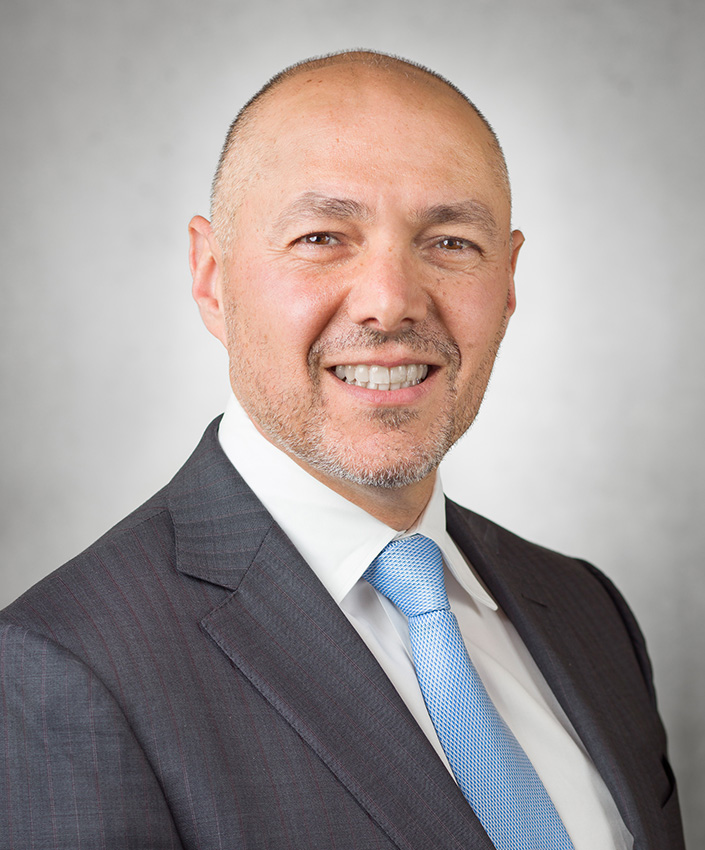Parsing the Genetic Drivers of Head and Neck Cancers
Human papilloma virus causes some cases, but the most lethal form of head and neck cancer is linked to chromosomal alterations; a new study sharpens that association and hints of more effective treatment options
Story by:
Published Date
Article Content
Head and neck cancer, which kills more than 400,000 persons worldwide each year, has multiple causes. The human papilloma virus (HPV), a sexually transmitted infection, is one, but the most common and lethal subtype are HPV-negative head and neck cancers, which account for 3 percent of all malignancies in the United States and 15,000 deaths annually.
“Typically, head and neck cancers begin in the squamous cells that line the mucosal surfaces, such as inside the mouth and throat and there are multiple treatment options, including surgery, radiation and chemotherapy,” said Ezra Cohen, MD, co-director of the Gleiberman Head and Neck Cancer Center at Moores Cancer Center at UC San Diego Health.

“But these cancers are complex and no single treatment works for every patient every time, which is why immune checkpoint inhibitors were developed, which use antibodies to make tumor cells visible to a patient’s immune system.”
Immune checkpoint therapy (ICT) first emerged in the 1990s and has progressed dramatically in recent years, but drug resistance in head and neck cancer cases remains prevalent, poorly understood and largely unidentified by current biomarker tests, said Cohen.
Currently available Food and Drug Administration-approved PD-1 (a protein) immune checkpoint antibody therapy produces durable responses in 15 percent of patients with head and neck squamous cancer. The remaining 85 percent receive no benefit and may, in fact, experience severe, immune-related adverse effects.
Like other types of head and neck cancer, the HPV-negative subtype has multiple risk factors, such as tobacco and alcohol use, but the primary cause appears to be genetic copy-number alterations.
In a new study, published in the November 14, 2022 issue of PNAS, Cohen, with colleagues at Moores Cancer Center, UC San Diego School of Medicine and elsewhere, expand and deepen understanding of how genetic aberrations fuel HPV-negative head and neck cancers and, potentially, provide paths to further refinement and improvement of immune checkpoint inhibitors for HPV-negative head and neck cancers.
In research published, last year, the same team of scientists laid the groundwork, becoming the first to discover the impact of loss of a copy of a genetic region on the short p arm of chromosome 9 in causing immune escape and ICT resistance of HPV-negative head and neck cancer.

But the 2021 findings raised new questions about whether the genetic abnormalities might involve losses at more than one locus on chromosome 9p. The new work provides answers, based on multi-omic immunogenetic evidence from analyses of each band at each locus, and each gene within each band in four different patient cohorts.
“We found that it’s not just the 9p21 locus on chromosome 9p that’s involved, but also the 9p24 locus, which may be even more important in driving resistance to immune checkpoint therapy; and surprisingly we found that gains of these genetic regions, at least in the case of HPV-negative head and neck squamous cancer, were associated with ICT survival benefit” said study co-senior author and co-corresponding author Scott Lippman, MD, Distinguished Chugai Professor and Moores Cancer Center director.
The researchers found that median survival rates were three-fold higher when treating 9p-gain cases, specifically tumors with 9p24.1 band expression above the 60th percentile compared to chemotherapy (but lower below the transcript threshold.) Whole-exome analyses of ten solid tumors suggested that these 9p-related ICT findings could be relevant to squamous cancers, in which 9p24.1 gain/immune-response associations exist.
These 9p24.1-alteration/immune-oncology findings reveal genetically defined ICT-sensitivity and -resistance in HPV-negative squamous tumors, addressing a major unmet medical need of precision therapy for these patients. They identify likely ICT response and resistance mechanisms that point toward treatment options more likely to be effective.
This discovery may have a profound impact in the science and practice of immune-oncology, said Lippman, revealing the basis and model of recurrent chromosomal alterations as oncogenic drivers, and key determinants of immune phenotype, and identifying a novel ICT-resistance mechanism leading to a new standard-of-care diagnostic biomarker test.
“This work is progressively defining the genetic basis for responsiveness to one of the most employed forms of oncology therapeutics,” said co-author Webster K. Cavenee, PhD, Distinguished Professor Emeritus at UC San Diego School of Medicine. “The ability to identify these distinct groups of patients can be expected to have significant clinical impact for them.”
Co-authors include: Xin Zhao, Joy J. Bianchi and co-senior author Teresa Davoli; J. Silvio Gutkind and Ludmil B. Alexandrov, both at UC San Diego; William N. William Jr, University of Texas and Hospital BP, Brazil; and Jim P. Abraham, Daniel Magee and David B. Spetzler, all at Caris Life Sciences, Texas.
Funding for this research came, in part, from Instituto Cura; Cancer Research UK Grand Challenge, Mark Foundation for Cancer Research (C5470/A27144), the National Institutes of Health (grants R00 CA212621, R37 CA248631, R01DE026644, P01 CA106451, P50 CA097007 and P30 CA023100); an MRA Young Investigator Award; the Packard Fellowship for Science and Engineering; the National Foundation for Cancer Research; and Stand Up To Cancer–Lustgarten Foundation Pancreatic Cancer Interception Dream Team Translational Cancer Research (grant SU2C-AACR-DT-25-17).
Disclosures: Ezra Cohen has received compensation from MSD and Roche for attending advisory boards and is on the scientific advisory board for Pangea Biomed and Soteria. Cohen and J. Silvio Gutkind are on the scientific advisory board of io9. Gutkind is consultant for Domain Therapeutics, Pangea Therapeutics and founder of Kadima Pharmaceuticals. Ludmil B. Alexandrov is a compensated consultant and has equity interest in io9. His spouse is an employee of Biotheranostics, Inc. He is also an inventor of U.S. Patent 10,776,718 for source identification by non-negative matrix factorization and declares U.S. provisional applications with serial numbers: 63/289,601, 63/269,033 and 63/366,392. Webster K. Cavenee and Scott Lippman are co-founders of io9. Cavenee is on the board of directors of Genetron Health and a founder of Interleukin Combinatorial Therapies and InVaMet. Lippman is on the scientific advisory board of Biological Dynamics.
“This work is progressively defining the genetic basis for responsiveness to one of the most employed forms of oncology therapeutics. The ability to identify these distinct groups of patients can be expected to have significant clinical impact for them.”
You May Also Like
Engineers Take a Closer Look at How a Plant Virus Primes the Immune System to Fight Cancer
Technology & EngineeringStay in the Know
Keep up with all the latest from UC San Diego. Subscribe to the newsletter today.




